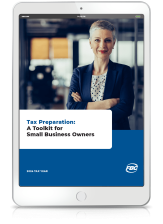Contents
- 1 What are tax instalment payments?
- 2 When are tax instalment payments due?
- 3 How do I know if I have to pay tax by instalments?
- 4 How do I calculate my instalment payments?
- 5 What if my income level changes in the same year as I make instalment payments?
- 6 Can I reduce or eliminate tax instalment payments?
- 7 Instalment payments for farming and fishing
- 8 Free Download: Small Business Tax Strategies: A Complete Owner’s Manual
- 9 About FBC
Last updated: May. 7, 2024
Unfortunately, when it comes to instalment payments, the answer to this question is not so cut and dry.
Installment payments are typically calculated using your previous years’ net taxing owing. If your net tax owing was more than $3,000 ($1,800 for Quebec) for 2022, and in either 2021 or 2020, then you may need to pay instalments in 2023. However, this formula doesn’t take your current tax situation into account.
For example, let’s say you owed more than $3,000 in the past two years due to an unusual sell-off of investments, then the calculation would indicate instalment payments are due. However, if you do not owe any additional tax in the current tax year (maybe your employer remitted sufficient tax and/or there were no unusual gains), then instalments aren’t due at all – despite having owed more than $3,000 of net tax in prior years.
Below, we walk you through the ins-and-outs of instalments, including how to calculate them.
If you’re ever uncertain about whether you should pay your instalments, we recommend speaking with a tax specialist to ensure you avoid Canada Revenue Agency (CRA) interest or penalties.
What are tax instalment payments?
Instead of paying taxes in one lump sum on April 30 of the following year, instalments are paid during the same year as the income is earned.
As stated above, if your net tax owing was more than $3,000 ($1,800 for Quebec) for 2022, and in either 2021 or 2020, then you will need to pay instalments in 2023.
This can happen when your employer doesn’t withhold enough tax, if you’re self-employed or have more than one job, or if you have additional income sources from investments, rental properties, or certain pension payments.
When you go to file your taxes, you must claim the installment payments you made in the same year as you earned the income.
When are tax instalment payments due?
Tax instalment payments are typically due quarterly by the following dates:
- March 15, June 15, September 15, and December 15
Farmers and fishers, however, have one due date on December 31.
Payments that are late or short of the full amount are subject to interest and penalty charges by the Canada Revenue Agency (CRA).
How do I know if I have to pay tax by instalments?
The CRA will look at your prior-year tax return and send instalment reminders to you based on your prior returns.
Although payments are typically due quarterly, the CRA will only send two instalment reminders:
- February reminder is for the March and June payments
- August reminder is for the September and December payments
You can find the amount you owe and the reminders online in your CRA My Account for Individuals or your CRA My Business Account.
Please note, if you’ve opted to receive an express Notice of Assessment (NOA), instalment reminders will also be electronically sent (i.e., not physically mailed).
How do I calculate my instalment payments?
According to the CRA, there are three different options you can use to calculate your instalment payments:
- No-calculation option: The option is best if your income, deductions, and credits generally stay the same each year. With this option, the CRA determines the amount of your instalment payments based on your latest assessed tax return.
- Prior-year option: If your 2024 income, deductions and credits will be similar to 2023, but significantly different from 2022, then determine the instalment payments based on your 2023 tax return.
- Current-year option: This option is best if your 2024 income, deductions and credits will be vastly different from those in 2023 and 2022. In this option, you determine your amount based on your estimated current year net tax owing (2024).
The CRA has a chart to help you calculate instalment payments for 2024.
Again, we recommend speaking with a tax specialist before calculating your instalment payments to ensure you’re meeting all your tax obligations.
What if my income level changes in the same year as I make instalment payments?
As stated above, tax instalments can be calculated using several different methods, including prior year amounts owed, most recent year, and/or an estimated current year amount.
If your income increases through the year, you may owe additional income tax when you go to file your return – even though you’ve already made instalment payments. If that’s the case, you are still obligated to pay the outstanding amount by April 30 of the following year.
If your business is cyclical and your income fluctuates greatly throughout the year, you may still be required to pay your instalments. If that’s the case, then it’s important to treat instalments as any other financial obligation – budget accordingly to pay the right amount at the right time.
Can I reduce or eliminate tax instalment payments?
There are two ways to reduce or eliminate your tax instalment payments:
1.You incur losses or generate little income in a given tax year
If you incur rental losses, capital losses or otherwise have little-to-no taxable income within a given tax year, you likely do not need remit instalments because you will not owe any taxes.
2. You are employed or receive pensions
If you’re an employee or receive certain pension payments, you can have tax withheld or increase the amount of tax deducted from these sources:
- Old Age Security
- Canada Pension Plan Benefits
- Employment Insurance or pension benefits
The CRA provides the following example of how this works:
- Hugh is a resident of Alberta and pays his tax by instalments. His net tax owing has been $3,500 for several years and he expects it will stay the same in 2023.
- He decides to have more tax withheld from his income in 2023. In January 2023, Hugh filled out Form TD1 to ask his pension plan administrator to withhold an extra $250 each month from his pension income.
- Hugh now estimates his net tax owing will be $500 for 2023. Based on his estimate, he does not have to make instalment payments in 2023 because his net tax owing will not be over $3,000 for 2023.
- Hugh would disregard the instalment reminders he receives for 2023.
Instalment payments for farming and fishing
If your main source of self-employment income is from farming or fishing and you owe more than $3,000 in net tax, you only make one lump sum instalment payment on December 31.
You’ll receive an instalment reminder in November.
Instalment quick tips:
- Instalments are typically due quarterly: March 15, June 15, September 15, and December 15. If you work in farming or fishing, they’re due on December 31.
- If the instalment deadline falls on a weekend or holiday, the CRA considers it to be on time if it’s received by the next business day.
- The CRA will send you instalment reminders in February and August for quarterly payments, but it’s up to you to remember to pay them or you may face interest and penalties. Farmers and fishers will receive their reminder in November.
- You can find the amount you owe and the reminders online in your CRA My Account for Individuals or your CRA My Business Account.
- Payments can be made through your CRA account, through your financial institution, or by cheque as long as it’s postmarked by the instalment deadline. You can also choose to make pre-authorized payments.
- You must claim your instalment payments when you go to file your taxes for the same year in which you earned that income.
Determining whether you must pay instalments or not really boils down to your unique tax situation. Consulting with a tax specialist will ensure you apply the right strategy to meet your tax obligations while avoiding costly fees and penalties.
Free Download: Small Business Tax Strategies: A Complete Owner’s Manual
With Small Business Tax Strategies: A Complete Owner’s Manual, you’ll learn what key tax information and documents you need as a Canadian small business owner. There’s even a printable checklist that covers all the documents, tax slips and key tax write offs and deductions you shouldn’t miss out on.
Consider this toolkit your roadmap to help you get organized, reduce your tax burden, and keep more money in your pocket.
About FBC
For more than 70 years, we have helped hard-working Canadian small business owners, farmers and agricultural producers save time and money by connecting them to a people-powered network of tax, bookkeeping, payroll and financial planning experts.
We deliver industry-specific support for your business that helps maximize your tax savings, simplify your books and manage your payroll. Our paralegal team can get your business incorporated, file your minute books and annual returns. And our financial and estate planning team can help you manage your wealth and plan your transition to retirement.
Take 15-minutes to connect with us. Let’s see if we’re a good fit for you and your business. Book online or call us at 1-800-265-1002





